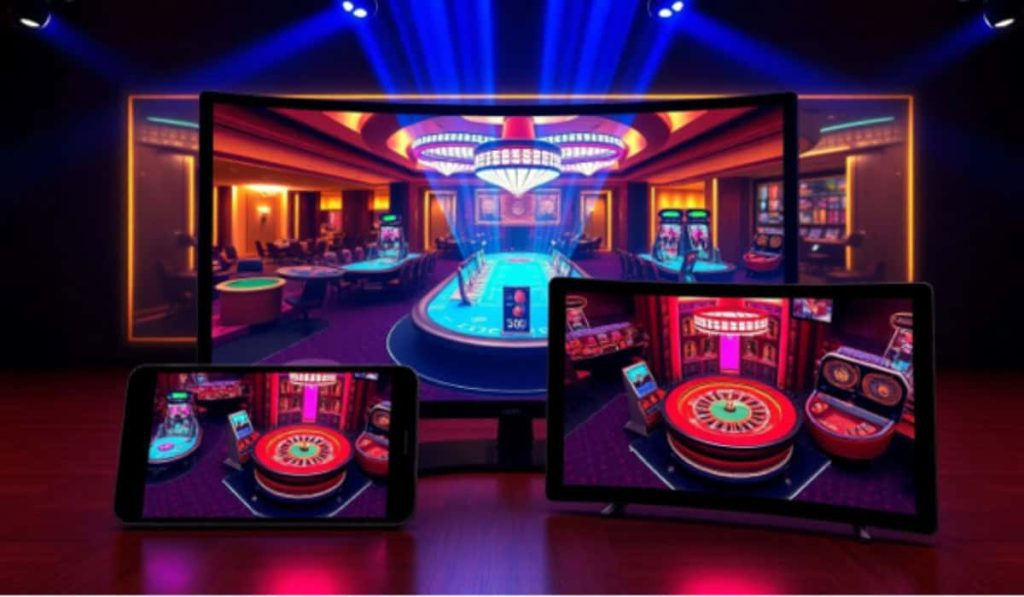In 2023, global online gambling revenue hit $292.1 billion and is expected to grow at an annual rate of 11.9% until 2030. Unlike traditional systems that take days to process transactions, modern platforms handle them in just minutes. More than 70% of casino earnings now originate from mobile devices, showcasing significant changes in player preferences. This technological shift not only enhances convenience but also fundamentally transforms the digital entertainment landscape, offering instant casino experiences that combine seamless payment options with engaging gameplay.
The Shift to No-Registration Casinos
Historically, online casinos required extensive sign-up processes, including document verification, which created obstacles for potential players. This complicated setup often made user experiences less enjoyable. However, advancements in technology have changed this norm. No-account casinos have streamlined the process by using advanced verification methods that allow players to start playing immediately without the usual registration hassles.
Payment solutions such as Trustly, Zimpler, and SWISH now enable identity verification through banking details, ensuring that security is upheld while players enjoy immediate access to games. This new approach offers several benefits:
- Improved privacy through reduced data sharing
- Significantly shorter waiting times from registration to gameplay
- Simplified withdrawal without extra verification
- Enhanced user experiences due to fewer friction points
Impact of Mobile Technology on Gaming
The rise of smartphones has spurred extraordinary growth in mobile casino gaming. As per Statista, over 70% of online casino revenue now comes from mobile platforms, highlighting a decisive market transition towards portable gaming options. This transformation goes beyond mere convenience, as high-speed 5G networks have resolved past latency issues, while modern smartphones offer graphics comparable to dedicated gaming systems, enriching mobile gameplay.
Additionally, cloud gaming allows demanding games to run seamlessly on nearly any device. Integration of mobile payments, along with digital wallets and biometric authentication, has created a smooth transaction experience, broadening access to casual gamers who might not have interacted with conventional platforms.
Revolution in Payment Processing
The evolution of payment systems stands as one of the most crucial drivers of instant casino gaming. Traditional methods often involve delays and verification challenges, which are increasingly being replaced by more efficient digital alternatives. Cryptocurrency has emerged as a leading force in this change, with Bitcoin, Ethereum, and specialized gaming tokens facilitating rapid transactions that bypass conventional banking methods. These digital currencies enhance security via blockchain while maintaining user anonymity, appealing to privacy-conscious players.
“Crypto transactions are usually completed in minutes, often instantly, and without fees, allowing players to access their winnings quickly and anonymously.” Moreover, established payment solutions have adapted; for example, Trustly’s Pay N Play connects directly with players’ bank accounts for identity verification and transaction processing without separate casino registrations.
Enhancing User Experience with Technology
Today’s instant casinos utilize advanced technologies to craft immersive experiences rivaling traditional gambling establishments. Virtual Reality (VR) is a significant innovation, allowing players to explore three-dimensional casino settings, interact with dealers, and engage with games in striking realism—all from home. This technology helps bridge the experiential gap that once favored physical casinos.
Artificial Intelligence has also transformed personalization by analyzing player behaviors to suggest games, customize promotions, and even identify potential gambling issues. This level of personalization was previously unimaginable in conventional casinos. Additionally, live dealer technology combines high-definition streaming with interactive interfaces, preserving the human element that many players appreciate while integrating the ease of online platforms.
Navigating Regulatory Challenges
The rapid advancement of instant casino gaming raises intricate regulatory considerations, as different regions have varying stances on online gambling, especially regarding verification and responsible gaming. Operators are leveraging technology to navigate this landscape effectively. Advanced security measures include:
- Encryption methods that exceed standard banking protocols
- Blockchain mechanisms for transparent transaction audits
- Geolocation technologies for local compliance
- Age verification systems that require minimal personal info
- AI monitoring for suspicious activity and gambling issues
These safeguards enable operators to comply with anti-money laundering laws and responsible gaming guidelines while providing the streamlined experience that defines instant casino gaming. Regulatory bodies are increasingly acknowledging the effectiveness of these solutions, with some areas adapting their rules to accommodate instant-play models.
Looking Ahead: Future Innovations
Emerging technologies are poised to further evolve instant casino gaming. Augmented Reality (AR) will blur lines between virtual and physical settings, creating hybrid experiences beyond today’s casino models. Integration with the Internet of Things (IoT) will allow seamless interactions across platforms. Skill-based gaming will also continue to grow, with formats like Plinko and Dice combining player choice with gambling elements. As these technologies converge, the distinctions between various forms of entertainment will become increasingly indistinct.
Conclusion
The technology behind instant casino gaming has dramatically reshaped online entertainment by minimizing obstacles and improving accessibility. Statista forecasts that the online casino market will grow from $38.43 billion in 2025 to $45.88 billion by 2029. As technologies progress, immediacy, personalization, and immersive experiences are becoming standard expectations rather than unique features.



